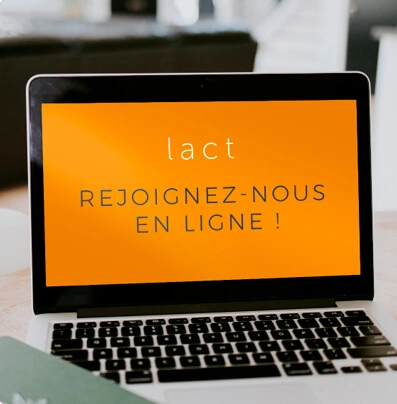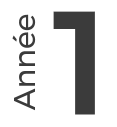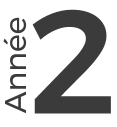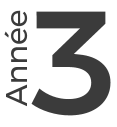Samuel, a teenage victim of school bullying, is supported by Palo Alto's systemic approach. Faced with bullying, Samuel discovers the strength to overcome obstacles and the courage to change his perception thanks to targeted therapy and the involvement of his parents.


ONLINE OPEN HOUSE
ONLINE OPEN HOUSE
November 12, 2024
from 6:30 p.m. to 8:30 p.m.
MEET US
Come and discover our training courses in strategic systemic approach, hypnosis and systemic coaching. You will meet the trainers and be able to talk with them!
Resolving harassment: a systemic and strategic perspective
School bullying represents a major public health problem, significantly impacting the well-being of children, adolescents and even witnesses. Although its prevalence varies, overall it is increasing. Multiple intervention programs have been developed, but their effectiveness is mixed, with some focusing primarily on perpetrators, leaving victims in a vulnerable position.
The subject of school bullying is explored and addressed through the various approaches and methods for its prevention and treatment. Currently there is no consensus in the definition and classification of harassment, leading to different perspectives on how to prevent and intervene.
The systemic and strategic approach is effective and efficient and begins with a focus on parental accountability and involvement. This approach aims to effectively deal with school bullying by taking into account its multiple dimensions and by mobilizing the different actors involved.
Two main approaches are that of Olweus, who takes an individualistic perspective focusing on endogenous causes of disruptive behavior, and that of Anatol Pikas, who emphasizes group mechanisms and exogenous causes of harassment. Pikas offers a non-hurtful approach that aims to mobilize the empathy of harassers to change their behavior.
However, these approaches do not sufficiently take into account support and intervention for bullied children and their parents. Emmanuelle Piquet , systemic practitioner, offers a more strategic and systemic approach. It aims to remove the bullied child from the role of victim by providing them with the necessary tools to put an end to bullying quickly and radically.
Piquet's approach draws on the principles of the Palo Alto School, emphasizing interpersonal interactions and circular causality between elements of the system. Its protocol for dealing with school bullying focuses on identifying the relevant system, defining the problem, setting goals and identifying failed solution attempts.
The “collective brain” system is implemented in this innovative therapeutic method to address school bullying, offering an alternative to individual therapy by involving parents from the start of the process. The “collective brain” is a therapeutic method where two therapists work with a patient while others observe the session remotely. Inspired by MRI practices, this system allows for in-depth evaluation, continuing training for therapists and promotes research. Finally, it offers strategies to break patterns of aggression and help bullied children regain control of the situation.
Consultations for children and parental involvement
During consultations for children, parents are first seen alone to encourage free expression of parental emotions and equip parents for autonomy in the management of family problems . If necessary, direct intervention with the child is offered with their consent, emphasizing the importance of taking into account the different perspectives between parents and children.
Protocol for handling harassment according to the Palo Alto model
The treatment of harassment according to Piquet's model is based on the identification of ineffective attempts at regulation and their replacement with effective strategies. Parents are also involved in the treatment process, with particular attention to their posture and their impact on the problem.
Understand and act: the case of Samuel
During the first consultation, Fanny, Samuel's mother, expressed deep concern about her son, aged 5 and in the upper section. Although smiling and relaxed at first, her emotional state quickly changes when she addresses Samuel's problem. She describes how Samuel has been bullied since childhood, and that recent events, such as his reluctance to go to school and threats of violence from other children, have exacerbated his concerns.
Analysis of parental reactions and strategies
Fanny expresses her dismay at her son's situation. She initially took Samuel's complaints as typical preschool bickering. However, she begins to realize the seriousness of the situation, especially after Samuel mentions suicidal thoughts at age 4. Despite her efforts to support Samuel, she feels overwhelmed and powerless.
Parental regulation mechanisms
The therapists explore Fanny's reactions to Samuel's situation, noting that she sought to intervene with the school and encouraged Samuel to physically defend himself. However, these actions appear to have exacerbated the problem. Fanny realizes that her recurring questions to Samuel about his relationships can aggravate his distress and put additional pressure on him.
Towards a strategic approach
The therapists seek to make Fanny aware of the unintended consequences of her actions. They emphasize that his father's attempts at coaching and his excessive questioning can place Samuel in a situation of failure and reinforce his feeling of helplessness. Using humor and validation, therapists prepare Fanny to take a less directive and more supportive approach.
Requirements and objectives
The therapists suggest that Fanny stop questioning Samuel about his relationships and no longer coach him in his social interactions. Instead, they recommend that he receive Samuel's confidences with empathy and direct him to professional care if necessary. The aim is to break the vicious cycle of attempts at parental regulation and encourage a more flexible and compassionate approach.
Samuel's case highlights the importance of understanding parental reactions to school bullying. By taking a strategic and empathetic approach, parents can better support their children and promote their emotional well-being. This shift in perspective can pave the way for more effective and sustainable solutions to end bullying and restore children's confidence.

Meeting with Samuel
Two weeks after this first consultation, the therapists met Samuel, a little boy who was intimidated at the start of this meeting. He was introduced to the therapists who follow up, as well as the members of the “collective brain” working behind the scenes to create an alliance with this little boy. Despite his impression of the number of people present, Samuel showed himself ready to collaborate.
The therapists explained their working framework to Samuel, telling him that they needed to understand precisely what was happening in order to be able to help him best. This consultation with Samuel made it possible to identify the sources of stress at school and at the Leisure Center. He then entrusted the names of the children who bothered him at school and at the Leisure Center. He also shared his strategies for dealing with these situations, such as making them believe that there is something they like more behind him, to divert their attention and to make them leave. By proposing alternative strategies, the team thought about solutions to help him better manage his difficulties and regain his self-confidence at school.
Analysis of interactions
By analyzing the interactions , systemic therapists identified Samuel's attempts to regulate the behavior of other children. They noted that he had resources and that he managed to mobilize them to deal with his difficulties.
Finding strategies to deal with difficulties at school
Samuel received a proposal to reformulate the vicious circle in which he finds himself, explaining to him that the children continue to bother him because they see that it hurts him. It was suggested that he change his strategy by pretending that it does not bother him, in order to break this vicious circle.
We also identified phrases that Samuel could use to respond to the behavior of other children, such as "Ah, here are the brave ones who have to come in fours to hit me, go ahead!" or “Poop pudding!” by making bunny ears with your hands.
Samuel shares his revelations
The next consultation with Samuel began with a surprising revelation from him. When he was questioned about what had happened since the last session, Samuel confided that he was not subject to attacks from the other children, but that in reality, fights were initiated, initiated by himself. . This revelation took his mother and the therapists present by surprise.
It became clear that Samuel felt uncomfortable discussing this subject, avoiding certain questions by playing with the camera or distracting himself. These behaviors were interpreted as an attempt to alleviate his discomfort with the direct questions.
Reorientation of strategies
Faced with this new perspective, his mother expressed her confusion and her desire to adapt strategies to help Samuel. It was important to understand that Samuel did not see himself as a victim, but rather as an active participant in these struggles.
Samuel's mother tried to understand the situation, but her questions always seemed geared towards her initial perception of her son as a victim. Despite Samuel's repeated attempts to clarify things, his mother had difficulty changing her own perception.
Positive observation
Despite the mother's reluctance to accept this new perspective, the consultation revealed encouraging progress in Samuel. He seemed more relaxed and less inclined to complain about attacks from other children.
The mother was encouraged to take an approach less focused on Samuel's problems and to recognize his successes. The team noted that Samuel seemed to be finding his balance and had incorporated some strategies, even if he hadn't needed to use them yet.
School bullying and therapeutic empowerment
Samuel's clinical case presented us with an unexpected perspective on school bullying, highlighting the importance of understanding the individual perception of each child. Contrary to what one might have initially thought, Samuel did not see himself as a victim, but rather as an active participant in fighting games between children. This revelation led to an adjustment in the therapeutic approach, emphasizing Samuel's empowerment and strengthening his coping skills. By working with his mother to take a more positive view of the situation, Samuel showed encouraging signs of personal growth and resilience in the face of challenges encountered at school. It is important to remain open and receptive to each child's unique perspectives, and to design therapeutic interventions that meet their individual needs.
Where to train in the systemic and strategic approach?
LACT offers several live certified web training courses with 50 international trainers.
To find out the prices, select the training that interests you
MAPPING OF ALL LACT TRAINING COURSES
AND STRATEGIC APPROACH
Prerequisites
_
general
Bachelor's degree
with or without
clinical experience
clinical
Bac +3
with
clinical experience
Bac +5
with
clinical practice
education
Bachelor's degree
with or without
teaching experience
Bac +3
with
teaching experience
BUSINESS
Bachelor's degree
with or without
coaching experience

LACT
CERTIFICATE -
FOUNDATIONS LEVEL
UNIVERSITY
DIPLOMA -
RELATIONSHIP
CLINIC AND
STRATEGIC
INTERVENTION -
with
Paris 8 University
DIPLOMA
-
MASTER
®
IN
STRATEGIC SYSTEMIC
LACT
CERTIFICATE –
EDUCATION
FUNDAMENTALS LEVEL
UNIVERSITY
DIPLOMA -
STRATEGIC
SYSTEMS APPROACH TO
EDUCATION
-
with
Paris 8 University
LACT
CERTIFICATE -
SYTEMIC
COACHING
FUNDAMENTALS LEVEL

LACT CERTIFICATE - PRACTICAL LEVEL
COACH
DIPLOMA ®

SYSTEMICIAN ® - RELATIONSHIP CLINICIAN ® DIPLOMA - ADVANCED LEVEL
CLINICAL MASTER®![]()
DIPLOMA MASTER HYPNOSIS
AND STRATEGIC APPROACH

general
Bachelor's degree
with or without
clinical experience
clinical
Bac +3
with
clinical experience
Bac +5
with
clinical practice
LACT
CERTIFICATE -
FOUNDATIONS LEVEL
UNIVERSITY DIPLOMA
RELATIONSHIP
CLINIC AND
STRATEGIC INTERVENTION
with Paris 8 University
MASTERS
®
DIPLOMA IN
STRATEGIC SYSTEMIC
BUSINESS
Bachelor's degree
with or without
coaching experience
education
Bachelor's degree
with or without
teaching experience
Bac +3
with
teaching experience
LACT
CERTIFICATE -
SYTEMIC
COACHING
FUNDAMENTALS LEVEL
LACT
CERTIFICATE –
EDUCATION
FUNDAMENTALS LEVEL
UNIVERSITY
DIPLOMA –
STRATEGIC
SYSTEMS APPROACH TO
EDUCATION
with Paris 8 University

PRACTICAL LEVEL CERTIFICATE
DIPLOMA
®

SYSTEMICIAN ® - RELATIONSHIP CLINICIAN ® DIPLOMA - ADVANCED LEVEL

CLINICAL MASTER®![]()
DIPLOMA MASTER HYPNOSIS
Resources on Handling Harassment
- INNEE: The key role of teachers in ending school violence ( https://inee.org/sites/default/files/resources/383563fre.pdf )
- CNFCE training: Harassment in schools ( https://www.cnfce.com )
- La Croix: School bullying, a Swedish method put to the test ( https://www.la-croix.com )
- UNESCO: Guide on harassment and cyber-harassment ( https://unesdoc.unesco.org/ark:/48223/pf0000247999_fre )
- ScienceDirect: Main approaches to responding to school bullying ( https://www.sciencedirect.com )
- UNESCO: Combating violence and harassment in schools ( https://unesdoc.unesco.org/ark:/48223/pf0000374794_fre )
- La Croix: Systematic reporting of school harassment to the courts ( https://www.la-croix.com )
- OECD: Study on bullying and student disengagement ( https://www.oecd-ilibrary.org )
- The Conversation: Five things to know about school bullying ( https://theconversation.com )
- La Croix: School bullying, a Swedish method put to the test ( https://www.la-croix.com )
- Cairn.info: Obstacle to the treatment of school bullying in France ( https://www.cairn.info )
- INRS: Harassment and sexist actions – File ( https://www.inrs.fr )
- Sciences et Avenir: Strategies to combat school bullying ( https://www.sciencesetavenir.fr )
- Psychologies: The role of parents in preventing harassment ( https://www.psychologies.com )
- Education.gouv.fr: The ministry's actions to combat harassment ( https://www.education.gouv.fr )
- PsycNet: Developing students’ psychosocial skills ( https://psycnet.apa.org )
- La Croix: Raising awareness among middle school students about harassment ( https://www.la-croix.com )
- UNESCO: Conference on the fight against harassment between students ( https://unesdoc.unesco.org )
- ScienceDirect: Reactions from victims and those around them ( https://www.sciencedirect.com )
- La Croix: The method of shared concerns ( https://www.la-croix.com )
- Center Resis: Harassment and cyberbullying at school ( http://www.centreresis.org )
- OECD: PISA and bullying data ( https://www.oecd-ilibrary.org )
- UNESCO: The objective of UNESCO's action in combating violence ( https://unesdoc.unesco.org )
- La Croix: An hour of awareness for middle school students ( https://www.la-croix.com )
- Cairn.info: Harassment and early prevention of antisocial behavior ( https://www.cairn.info )
- UNESCO: Recommendations on promising practices ( https://unesdoc.unesco.org )
- The Conversation: School bullying and mental health ( https://theconversation.com )
- CNFCE: Training program on school bullying ( https://www.cnfce.com )
- INNEE: Guide for teachers on school violence ( https://inee.org )
- Sciences et Avenir: The effects of harassment on health ( https://www.sciencesetavenir.fr )
- Psychologies: Strategies to help children who are victims of bullying ( https://www.psychologies.com )
- Education.gouv.fr: Tools to prevent harassment ( https://www.education.gouv.fr )
- PsycNet: Anti-bullying intervention programs ( https://psycnet.apa.org )
- La Croix: Methods to speak out about harassment ( https://www.la-croix.com )
- UNESCO: Global momentum to end harassment ( https://unesdoc.unesco.org )
- ScienceDirect: Sanctions and Restorative Practices Against Harassment ( https://www.sciencedirect.com )
- The Conversation: The role of emotions in combating bullying ( https://theconversation.com )
- Center Resis: Documentation on cyberharassment ( http://www.centreresis.org )
- OECD: Bullying and academic difficulty ( https://www.oecd-ilibrary.org )
- UNESCO: International conferences on harassment ( https://unesdoc.unesco.org )
- La Croix: School harassment, an hour of awareness ( https://www.la-croix.com )
- Cairn.info: Analysis of theoretical debates on harassment ( https://www.cairn.info )
- INRS: Consequences of harassment at work ( https://www.inrs.fr )
- PsycNet: Psychosocial skills and bullying ( https://psycnet.apa.org )




